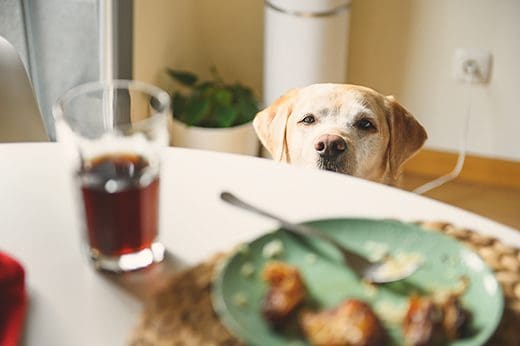Manhattan, KS— The holiday season is filled with hearty, delicious food, visiting with friends and family, decreased physical activity, busy schedules and weight gain. According to a Kansas State University veterinarian, it is also a time for our family pets to gain weight as well.
According to Susan Nelson, clinical professor at the university’s Veterinary Health Center, many pets gain weight during the holidays due to special treats being consumed and/or a few of those delicious table scraps making it into their bowls as well. Owners also may not be able to be as physically active or have as many play sessions with their pets because of busy holiday schedules.
“Table scraps are high in calories and fat, lead to weight gain and can also cause gastrointestinal upset or life-threatening pancreatitis,” Nelson said. “I advise owners to offer low-calorie fruits and vegetables — not cooked in butter — as a substitute for other types of table scraps, if they are going to be fed.”
Nelson offers the following tips to limit pet weight gain during the holidays and throughout the year:
• Limit the number of treats fed to less than 10% of total caloric intake. Your veterinarian can help calculate a pet’s caloric intake if needed.
• Break a single treat into several smaller portions that you can distribute throughout the day. Pets do not know the difference and will consume fewer calories from treat consumption.
• Use a treat dispenser or food puzzle to prolong the amount of time it takes a pet to eat and offer mental stimulation.
• Reserve some of the daily kibble to feed as treats instead.
• Keep your pet out of the dining room when eating and kitchen when cooking to be less likely to succumb to those pleading, big brown eyes that are begging for a bite.
For pet owners with less time to exercise or play with pets, Nelson suggests hiring a professional pet walker, family friend or neighbor to walk or play with your pets. Pet day care centers also offer opportunities for pet activity and socialization.
Pet owners concerned that a pet may be overweight can learn more about K-State’s Veterinary Health Center Healthy Weight Clinic, a part of the Hill’s Pet Health & Nutrition Center, at ksvhc.org/services/pet-health-center/pet-obesity-clinic.html.













